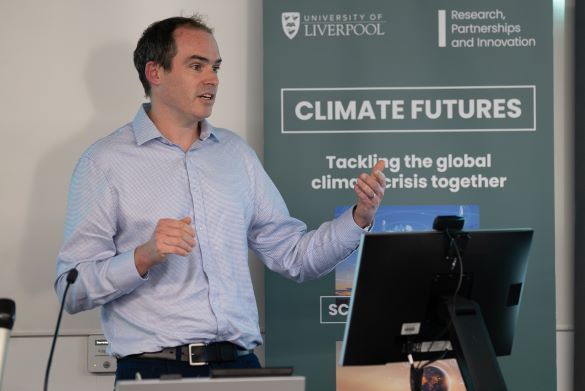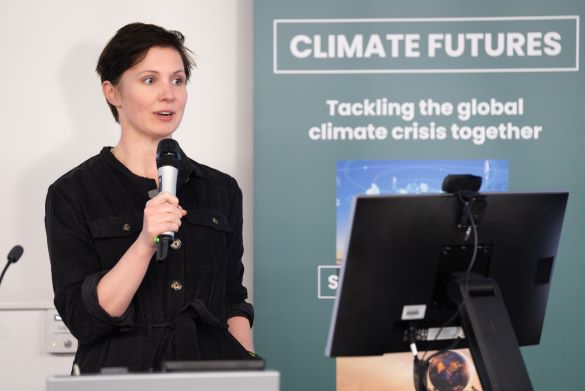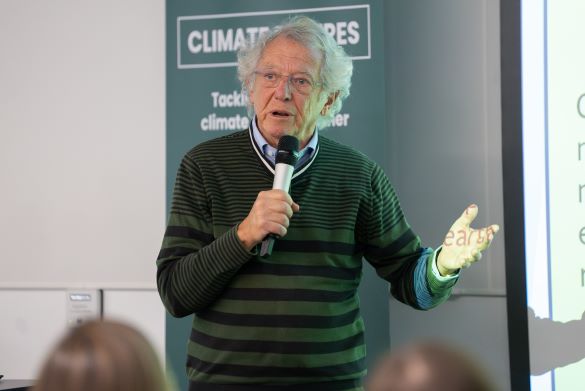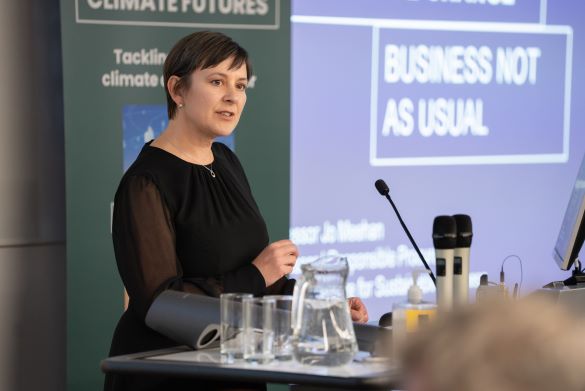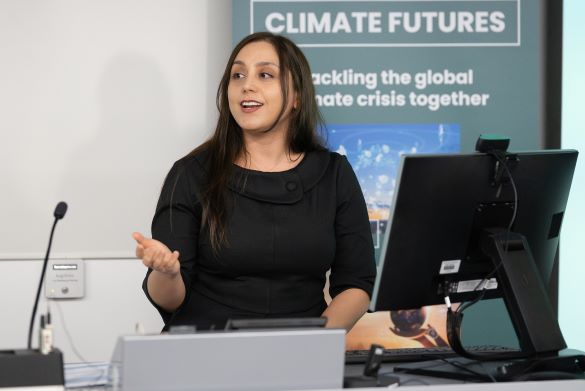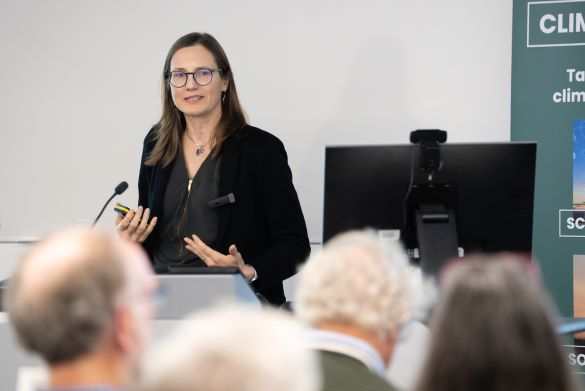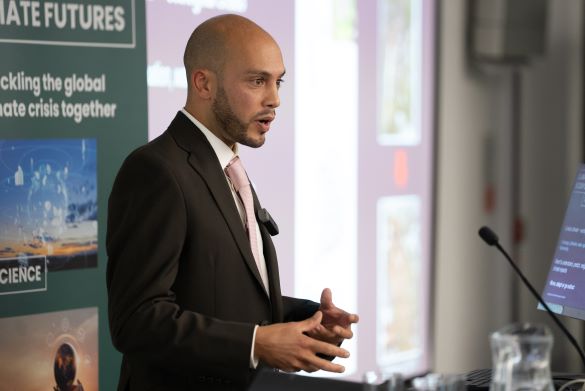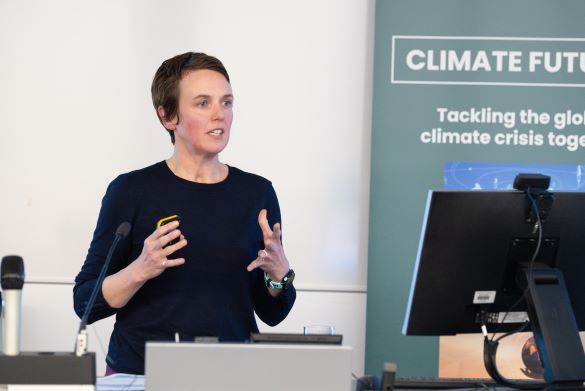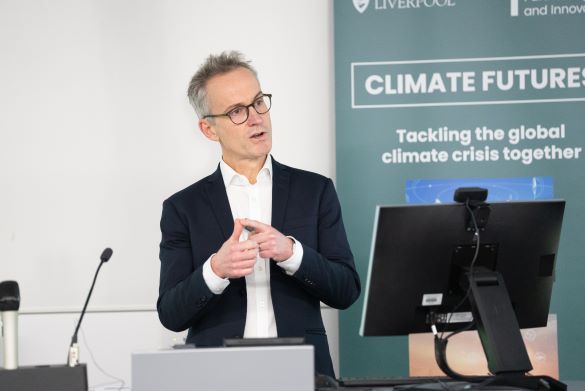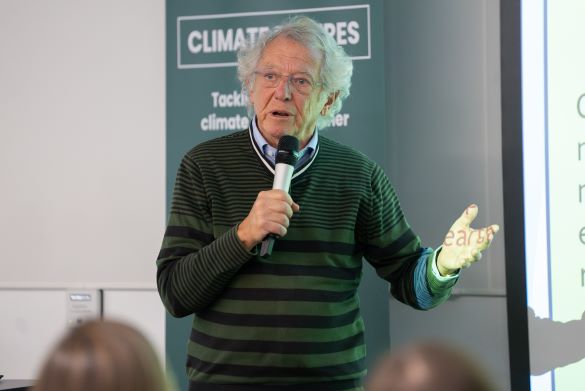
UK climate experts attended a University of Liverpool summit this week (Monday 13 November) ahead of the 2023 UN Climate Change Conference (COP 28), to explore the science and societal implications of climate change, and ways to drive action to find solutions.
Guest speakers at the event included Professor Sir David King, the Government’s Special Representative for Climate Change from 2013-2017 and Chair of the Climate Crisis Advisory Group, Gideon Henderson, Professor of Earth Sciences at the University of Oxford and Chief Scientific Adviser at DEFRA and Professor Elizabeth Robinson, Director of the Grantham Research Institute on Climate Change and the Environment.
Liverpool researchers involved in the University’s Climate Futures research theme also took part, including Professor Anna Slater, Dr Raj Whitlock, Professor Alex Cowan, Professor Claire Mahaffey, Dr Haniyeh Mohammadpourkarbasi and Professor Joanne Meehan.
The speakers and attendees explored a wide range of topics and perspectives, with Professor Sir David King outlining the Climate Crisis Advisory Group’s ‘4R’ planet strategy, Professor Elizabeth Robinson discussing the links between climate change and health, and Professor Gideon Henderson discussing DEFRA’s approach to climate science.
Academics from the University of Liverpool highlighted their work on a number of topics including the changing arctic ocean, responsible procurement for businesses, sustainable buildings, climate impacts on ecosystems and sustainable chemistry.
- Professor Alex Cowan
- Professor Anna Slater
- Professor Sir David King
- Professor Joanne Meehan
- Dr Haniyeh Mohammadpourkarbasi
- Professor Elizabeth Robinson
- Dr Raj Whitlock
- Professor Claire Mahaffey
- Professor Gideon Henderson
Professor Tim Jones, Vice-Chancellor of the University of Liverpool who also spoke at the event said: “I was pleased to welcome guest speakers Professor Gideon Henderson, Professor Liz Robinson and Professor Sir David King to our campus to give their expert insight on the scale of the climate challenge, and also to hear fascinating presentations from our internal academic speakers on some of the innovative research being led here at the University to address climate science, the impact of climate change on society and future mitigation solutions.
“Collectively, our ambitions must live up to the scale of the challenge, and our actions must live up to our ambitions. Our new University Strategy 2031, which has sustainability as a cross-cutting theme, outlines the University’s commitments in this area. Our vision is to drive forward environmental and social equity through our education, research and operations, making a positive impact.”
Click here to find out more about climate research at the University.
